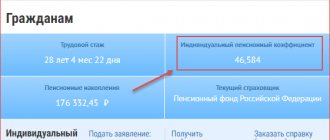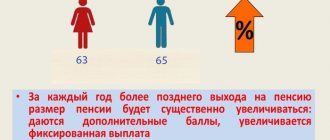The Bundesbank has proposed raising the retirement age in Germany to almost 70 years. This news has excited the whole country; the pros and cons are being emotionally discussed in the media and social networks (mostly, of course, the con); representatives of leading political parties, trade unions, and public organizations have made statements. Because of this, many seem to have the impression that this is a measure that will affect the working population of the country in the near future.
In fact, what is being discussed is not a new bill, not even a change in some party program, but a scientific article with a very revealing title: “Long-term prospects for state pension insurance.”
Pension reform is scheduled for the mid-2020s
It is included in the monthly report (Monatsbericht) published on October 21 by the Deutsche Bundesbank, which has acted primarily as a clearing house since the introduction of the euro and the transfer of monetary policy to the European Central Bank (ECB). The report consists of a number of brief assessments of the current state of the German economy and several detailed studies on socio-economic topics.
Context
A pension of almost half the salary of Germans is guaranteed until 2025
In Russia and Germany, on the same day, fundamental decisions were made on the pension system.
In the Russian Federation, the key figure is 60 years, in Germany there are two of them: 48% and 20%. (08/29/2018) Moreover, the key figure in the article is not 70 years (more precisely, 69 years and 4 months), but the year 2070. It is by this time, according to Bundesbank economists, that a new increase in the retirement age may be required. In Germany, this age will gradually increase to 67 years for men and women by 2031.
In other words, the change proposed in the article will fully affect those born in 2001 and later.
So the vast majority of those who are most actively arguing now about the Bundesbank’s proposal are unlikely to be affected by it. Moreover, in the era of rapid digitalization and robotization, it is completely impossible to predict which of the modern professions will still exist in half a century.
Why then even bring such a proposal up for discussion today? In order to, in the course of a broad expert and public discussion, begin now, in advance, to prepare the ground for the next reform of the German pension system.
It was scheduled for the mid-2020s so that it would start working after 2031.
But next spring the relevant commission should submit the first proposals. So the economists of the Bundesbank outlined their vision of the future reform, and not all of it, but only one of its aspects.
Increased life expectancy requires indexation of retirement age
It should be emphasized that they do not propose an automatic increase in the retirement age, but a mechanism for indexing it in accordance with changes in life expectancy. If people live longer, the retirement age will have to be increased to maintain the functionality of the existing pension system. Otherwise, such a measure may no longer be necessary.
The goal, the article notes, should be to ensure that the current ratio of the period during which a German resident receives a pension to the period during which he contributed to the pension fund remains relatively stable. At the moment, the system is designed in such a way that in the long term there is a risk of a change in the ratio in favor of the period of payment of money from the fund.
It is quite possible that the stormy public reaction to the article in a highly specialized economic collection significantly exceeded the expectations of its authors. Well, they can be pleased that they gave such a powerful impetus to the discussion of an extremely important problem for the whole country. The discussion will continue for several more years, and the pension topic will certainly become one of the most important during the next elections to the Bundestag, scheduled for autumn 2021.
In any case, residents of Germany are definitely not in danger of an unexpected announcement about an increase in the retirement age starting in six months, as happened in Russia last summer on the opening day of the football championship.
______________
Subscribe to our channels about Russia, Germany and Europe in | Twitter | Facebook | YouTube | Telegram
See also:
Pension reform in Russia in cartoons by Sergei Elkin
Pension in Germany
The German government shows a high level of development in the world community. One factor is concern for the welfare of older people.
Table of contents:
- Retirement age
- Calculation of retirement age in Germany
- State social insurance system
- Amount of contributions
- Minimum pension and state assistance
- Average pension
- In men
- Among women
- Types of pensions
- By old age
- Basic
- Early
- By disability
- Miners' pension
- On the occasion of the loss of a breadwinner
- Orphan
- Educational
- How to retire in Germany
- Divorce pension
- Working in retirement
- How to increase your pension
Retirement age
From 2012 to 2029, Germany is gradually raising the retirement age from 65 to 67 years. As you age, the size of your payments also increases.
The retirement date depends on the year and date of birth. Those born after 1964 will retire at age 67.
The retirement age in Germany is uniform and does not differ by gender.
Calculation of retirement age in Germany
| Year of birth | Retirement age | Year of retirement |
| 1955 | 65 years and 9 months | 2020 |
| 1956 | 65 years and 10 months | 2021 |
| 1957 | 65 years and 11 months | 2022 |
| 1958 | 66 years old | 2023 |
| 1959 | 66 years and 2 months | 2024 |
| 1960 | 66 years and 4 months | 2025 |
| 1961 | 66 years and 6 months | 2026 |
| 1962 | 66 years and 8 months | 2027 |
| 1963 | 66 years and 10 months | 2028 |
| 1964 | 67 years old | 2029 |
Thus, those born from 1955 to 1958 will receive one month of delayed retirement per year. And for those born from 1959 to 1963 - two months.
State social insurance system
The pension is paid to insured persons who have reached retirement age and have completed a minimum insurance period of 5 years.
From the first day of their work experience, each employee automatically receives the status of an insured person in the state pension insurance system. Everyone receives their own insurance number (Versicherungsnummer) and an account where the accruals will be transferred. The insurance number must be provided to the employer (since he also transfers payments to your account). The registration of Versicherungsnummer is carried out either by the employer, or the labor exchange, or the health insurance fund. insurance.
For information, please contact the Deutsche Rentenversicherung, which deals with pension insurance throughout Germany. You must have your insurance number with you.
Every year, Deutsche Rentenversicherung sends out a newsletter to all persons over 27 years of age with an information letter about how much pension they can expect when they retire. The size of the pension depends on the size and duration of contributions.
Amount of contributions
Contributions to the pension insurance system are proportional to earnings. The more earnings, the greater the payments. Contributions are paid by both the employee and the employer - 50/50. If an employee earns less than 450 euros per month, then the amount of payments remains the same (18.6%), but the percentage changes - 15% is paid by the employer, 3.6% by the employee.
Today the payment is 18.6% of gross wages. By 2025, it is planned to increase payments to the pension fund to 20%.
The maximum threshold from which payments will be calculated is 6,900 euros. Money earned above will not be taken into account.
Minimum pension and state assistance
The minimum pension for a salary of 1300 euros is 512 euros. Taking into account the payment of the basic pension, the pensioner's income can be increased to 961 euros.
State assistance is provided to those who have not worked the minimum length of service (5 years) and who have a severe form of disability.
Social pension payments:
- 432 euros - for singles;
- 389 euros - for families;
- 345 euros - for people in hospital.
Average pension
The size of the pension depends not only on wages, but also on the region. In the east, pensions are higher than in the west. However, the state plans to equalize the amount of payments throughout Germany until the end of 2024. The average pension without gender division is 782 euros.
In men
A man in Germany receives an average pension of 1,000 euros.
Among women
The average pension for women in Germany is 600 euros
It is planned to increase pensions by 2.2% annually, the goal is to increase pensions by 36% by 2031. According to official data, the pension should be at least 1,250 euros with a salary of at least 3,900 euros. However, in reality, salaries are much lower, pensions are lower.
Types of pensions
The type of pension paid depends on a number of conditions: age, gender, life situation.
- old age pension
- basic pension
- early retirement from 63-65 years of age, due to 45 years of service
- women's pension from age 60, paid to those born before 1952
- disability pension
- pension for miners from 60 years of age
- widow's pension, pension for the orphan of the deceased
- low pension supplement
By old age
To calculate a pension, a minimum insurance period of 5 years is required. Other periods included in the insurance period are also taken into account. From July 1, 2021, the amount of the paid pension has been increased by 5%. Until 2025, the level of the estimated pension will be kept at 45% of wages.
Other periods include:
- unemployed status
- maternity leave (child care up to 3 years old)
- caring for a relative
Basic
The basic pension is a supplement to the basic pension, awarded to those whose income does not exceed 1,250 euros per person or 1,950 euros for two. A prerequisite for receiving a basic pension is at least 33 years of work experience. Basic pensions will begin to be paid no earlier than January 2021. Thus, residents will have to receive a total of 10% more than the German minimum wage.
Early
Persons with at least 35 years of work experience can receive an early pension (pension for long-term insured persons). Thus, persons born before 1963 can take early retirement.
Those born in 1964 will retire at 67. In case of early retirement, the monthly payment will be reduced by 30%.
You can retire early without financial losses at the age of 63 if you have 45 years of accumulated experience.
The age minimum is gradually rising to 65 years for people born before December 31, 1952. Thus, 2 months will be added every year. Those born after 1964 will only be able to retire at age 65.
By disability
The following persons can receive payments:
- those who have reached retirement age;
- recognized as disabled at the time of retirement;
- with 35 years of work experience
The age limit for receiving a full pension for people with severe disabilities born after 1952 is extended from 63 to 65 years. Early retirement is possible at the age of 60-62 years. Monthly payments will be reduced by 30%.
Miners' pension
Miners retire at the age of 60, subject to 25 years of work experience. The pension is paid in full.
The retirement age is raised to 62 years. This will apply to persons born after December 31, 1952. It is planned to increase by 1 month per year, and for those born between 1959 and 1963 - by two months per year. Those born after 1964 will retire at 62.
On the occasion of the loss of a breadwinner
This type of pension is entitled to:
- in case of death of the legal spouse;
- minor children, upon the death of one or two parents. Half or full pension is paid for orphans.
- ex-spouse raising a minor child. The pension will cover education costs.
The conditions for paying the pension are as follows. The deceased had to work for a minimum period of 5 years, paying contributions. The requirements do not apply if the death occurred at work or a pension was already granted at the time of death. Also a prerequisite is the status of the recipient - after entering into an official marriage, a widow's pension is not paid.
Pensions are paid 2 years after the death of the breadwinner.
Amount of widow's pension payments:
- The minimum widow's pension is paid to persons under 47 years of age who are not raising children and are legally capable. The amount of payments is 25% of the amount of the spouse’s accrued pension;
- the maximum widow's pension is paid to persons over 47 years of age raising minor children, including adopted ones (if the child is disabled, then age does not matter in this case). The amount of payments is 55% of the accrued pension. You can receive an early pension earlier, at 45 years and 9 months (2020), until December 31, 2028, this age will increase.
For those married before 2002 with the condition that the deceased spouse was born before January 2, 1962, the minimum pension is paid without restrictions, and the maximum pension is increased to 60%.
Payment procedure:
- The widow's pension is accrued no earlier than the next month after the death of the breadwinner - provided that the deceased has already received a pension;
- If the deceased did not receive a pension, then the widow's pension is accrued immediately after the death of the breadwinner.
- For the first three months, the widow or widower receives full pension payments.
Orphan
The pension is due:
- biological or adopted children of the deceased;
- adopted children living in the house of the deceased;
- grandchildren, brothers, sisters living in the house of the deceased and who were financially supported by the deceased.
The right to receive an orphan's pension remains even if the orphan is adopted.
The orphan's pension is paid to everyone under 18 years of age. The amount of payments is 10% or 20% of the accrued pension of the deceased.
The pension can be extended up to 27 years if the orphan:
- receives education (in case of interruption by military service, for example, the pension is paid even at 27 inclusive);
- provides volunteer service;
- has a severe form of disability (unable to take care of himself);
- stays no more than 4 months without a specific status (for example, waiting for the next course of study, or is waiting to start training after completing military service).
Educational
Unlike the orphan's pension, the educational pension is not tied to the accrued pension of the deceased. This pension is calculated from your personal pension account and pays for your child’s education expenses. To obtain it, you must have a work experience of at least 5 years before the death of your ex-spouse.
Requirements for calculating educational pension:
- divorce took place after June 30, 1977;
- at the moment the pension recipient is not officially married;
- the recipient is raising a common child, or a child of a spouse or an adopted child under 18 years of age. If the child is disabled, age requirements do not apply.
The amount of the educational pension is calculated in the same way as the disability pension. In case of accrual of several pensions, only one, the largest one, will be paid.
How to retire in Germany
The pension is not calculated automatically; an application must be submitted.
We provide you with step-by-step instructions:
- Apply for a pension (Rentenantrag) to the state pension insurance fund - Deutsche Rentenversicherung. You can write in free form, you can find a special form here.
- Attach, if necessary, documents that were not taken into account by Pension Insurance. For example, documents confirming the status of unemployed (extract from the labor exchange), student (certificate), maternity or paternity (birth certificate of children), etc.
- Collect and provide:
- Steueridentifikationsnummer - tax identification number;
- IBAN and BIC - bank account number and bank code; Personalausweis or Reisepass - passport or international passport;
- health insurance card
It is advisable to submit your Rentenantrag application three months before your official retirement, so you are guaranteed to receive a timely payment. However, it is not critical to submit your application a few months or a year later after retirement
Divorce pension
In the event of divorce, a procedure for dividing pension savings (Versorgungsausgleich) is carried out. The goal is to equalize future pension benefits for both former spouses. Thus, if a spouse, for example, was engaged in housekeeping or did not work the required length of service, or received a low salary, then upon reaching retirement age she will be entitled to receive a pension.
This procedure is carried out for all divorcees, with the exception of those who have drawn up a marriage contract, which stipulates the refusal of division.
The following are subject to alignment:
- accumulation of compulsory pension insurance;
- private pension insurance savings;
- accumulation of the provision fund for civil servants;
- accumulation of professional pension funds (for example, lawyers, doctors);
- disability pension and pension for loss of professional ability to work.
All savings during the divorce process are divided equally - 50/50, unless other conditions are specified in the marriage contract.
Working in retirement
Few pensioners can boast of a decent pension; not everyone received high salaries. Therefore, people here prefer to work in retirement until they are 75 years old. The decisive factors are: field of activity, state of health, amount of pension paid.
- Upon reaching 65 years of age, there is no need to quit. If the employment contract does not stipulate termination of the contract due to retirement, this means that you can continue to operate. No employer has the right to fire you because of your age if this clause is not spelled out in the contract. Many companies hire retirees, usually on a part-time basis.
- Working pensioners continue to pay taxes and insurance contributions if:
- turned 65 years old, but no pension is paid
- salary more than 450 euros.
- Those who retire early are legally entitled to continue working. However, if the salary exceeds 525 euros per month, the pension payment will be reduced by 40%.
How to increase your pension
Two options:
- pay insurance benefits for as long as possible;
- defer your pension claim.
Each month of deferment increases the payment amount by 0.5%. It will add up to 6% in a year. Moreover, the increasing percentage does not depend on whether you work or not, whether you pay insurance premiums or not.
The government waited for the election results
Experts have been talking about the need to raise the retirement age in Russia for a long time. The government and officials did not press the issue... until the presidential elections on March 18, 2021. And after the re-election of Vladimir Putin and the reappointment of Dmitry Medvedev as prime minister, pension reform was officially announced.
Pension reform in Russia in cartoons by Sergei Elkin
Difference from Russia
Sociologists believe that the degree of civilization of a society is determined by the standard of living of the elderly population. In this vein, Russia, of course, occupies one of the last places; our elderly tourists cannot be found at famous resorts; the monthly allowance is barely enough for food. How could Germany and other European countries create such a well-functioning and effective social security system?
First of all, the retirement age in Germany depends on the year of birth of the pensioner. Those born before 1947 reach retirement age at 65, then the year of retirement increases, and all those born since 1964 reach retirement age only at 67. Thus, both men and women reach normal retirement age in Germany at 65-67 years.
We see that the retirement age in Germany is higher than the Russian norm. This fact is influenced by the average life expectancy in the country. In Germany it is greater due to good medical care and prevention methods. And the general ideas about old age in our countries are radically different. In Russia, after 50 years of age, a woman considers herself old, and after 70 years of age, sometimes an ambulance does not come to grandmothers, while in Europe, upon retirement, many people begin a new full life, adventures, travel and love.
Plus 5 years for men, plus 8 for women
The Russian government approved a bill on gradually increasing the retirement age on June 14, 2021. According to it, the retirement age for men is planned to be increased from 60 to 65 years by 2028, for women - from 55 to 63 years by 2034.
Pension reform in Russia in cartoons by Sergei Elkin
Pensions for migrants
Today, pensions are paid to foreign citizens extremely rarely and in exceptional cases. To receive more or less decent payments, a person must live and work in the country for several years and reach the established retirement age in Germany. Simply put, official contributions must go to the budget.
In addition, the following categories of citizens have the right to receive social benefits in old age:
- ethnic Germans expelled from the country and returning no later than January 1, 1993;
- Germans who were deported to different countries after 1945;
- people who do not have citizenship and who have acquired German citizenship in accordance with the rules established by law;
- close relatives of the above persons.
This law applies strictly in the points described; no other interpretations or expansions of the meaning are possible.
Everyone who worked and paid contributions in Germany will be guaranteed a pension, but its size depends on the duration of work and the amount of contributions.
Raising the retirement age in Russia under the guise of the 2018 World Cup
It is noteworthy that the Russian government announced plans to raise the retirement age during the 2018 World Cup. According to experts, the authorities have made a safe bet on sports euphoria.
Pension reform in Russia in cartoons by Sergei Elkin
Trade unions are against the increase
The All-Russian Association of Trade Unions launched a petition addressed to President Putin demanding not to raise the retirement age. In the first two weeks alone, more than 2.5 million Russians signed it.
Pension reform in Russia in cartoons by Sergei Elkin
Types of pension accruals and how payments are calculated
German pension legislation provides for several types of pension provision; we will analyze several of them in detail.
- Regular old age pension (Altersrentne). This type of pension is accrued to previously employed German citizens upon reaching retirement age. It is formed through mandatory joint insurance contributions between the employee and the employer.
- Early pension for persons with long service . If a German has more than 45 years of work experience, then he has the right to retire 2 years earlier than established by law.
- Disability pension (Erwerbsminderungsrente). This type of security is established for citizens who, due to illness or injury, cannot work and provide for themselves.
- Early pension for certain categories of workers . Some categories of workers whose activities were associated with increased risks to health and ability to work are entitled to a special type of early pension provision. For example, such persons include miners.
- Pensions for widowers (widows), orphans (Hinterbliebenenrente). The closest Russian analogue is the “survivor’s pension”.
In addition to state pension provision, German citizens, if there are grounds, can receive corporate pensions (from the employer) and private ones, but only if appropriate contributions are made to private pension organizations.
Pensioners ordered to live long
One of the questions that worries citizens if their age increases is whether they will live to see retirement. For Russian men, the situation here is especially problematic. Even at the current retirement age of 60, the probability of surviving until this point for 20-year-old men in Russia is 68%.
Pension reform in Russia in cartoons by Sergei Elkin
Pension sizes for different categories of citizens
There are a number of types of pensions paid only by the state:
- by age: 65-67;
- by disability: congenital or acquired;
- the presence of an injury that prevents you from performing work activities;
- work in the mines and the onset of age - 60;
- death of a second family member (husband, wife).
In Germany, the principle of equalization of pensions in the event of divorce is used. A wife raising children usually earns less than her husband. In court, the amounts received are distributed equally between the spouses automatically, without requiring them to submit statements.
Minimum pension in Germany
When a person reaches a certain age or receives a disability, he applies for payment to the Pension Fund. If the amount of accrual is minimal, less than €789 per month (800 dollars or 55 thousand rubles), then he is given an application for the accrual of a special Grundsicherung benefit. When calculating the amount, all the person’s income and the current specific life situation are taken into account, so the amount ranges from €324 to €404.
Additionally, the state pays for utilities, housing, repairs, medical care and other needs upon provision of documents confirming the expenses incurred.
Average pension in Germany
All information about pension amounts is available on official websites. Its value depends on the gender of the citizen and his place of residence in the country:
- Women have less amounts to pay than men;
- in the Eastern part they receive more than in the Western part.
As of January 1, 2019, the average amount of accruals in € after payment of all taxes is presented in the table:
| West Germany | Eastern | Standard calculated | |
| Men | 1018 | 1068 | 1441,35 |
| Women | 630 | 855 | 1264 |
Calculation for all types of pensions will give an average value of €770. The standard settlement amount is a certain amount that is calculated assuming that certain conditions are met by the citizen:
- experience is 45 years;
- payment of contributions to the Pension Fund without interruption;
- receiving the average statistical salary throughout your working life.
It’s impossible to actually earn this kind of experience:
- a person studies, obtaining a specialty;
- a woman takes care of small children;
- a number of other factors.
On average, the male population is 40 years old, and the female half is 30. In 2021, the government decides to establish a standard calculated pension until 2025 at 48% of the average salary. This should prevent any real decline.
By old age
A person who has 5 years of experience or 60 contributions (1 contribution is deductions per month of work) can apply for government payments. For comparison: in Russia it takes 15 years. At this time, periods without contributions are included:
- official status of unemployed;
- caring for a child under 3 years of age or a sick family member.
Failure to comply with this condition will result in only other types of pensions or benefits. The amount is influenced by factors such as:
- the amount of insurance contributions;
- duration of work;
- age;
- political and economic situation in the country;
- place of residence - Western or Eastern part;
- type of deductions.
Foreigners receive a pension on the same terms as Germans if they have worked in Germany for at least 5 years.
When emigrating from the country, a person has the opportunity to withdraw transfers from the Pension Fund, but only his part.
By disability
Total or partial disability gives the right to receive a pension before the established age. There are restrictions:
- accident at work - 1 month's contribution is sufficient for accruals;
- domestic injury or illness - at least 1 year of transfers to the Pension Fund.
- conclusion of a medical commission indicating whether it is possible to resume work after rehabilitation.
No fees required for 5 years. Partial disability - a citizen can remain at the workplace for any profession for less than 6 hours.
There is no set payment amount. It is 100% of the age average for disability group 1, 60% for disability group 2, and 30% for disability group 3.
Social
One of its types is support for orphans in the event of the death of their parents. The amounts are minimal - 10% of the salary if one person died, 20% if both died. Payments continue until the age of 18. May be extended if the child:
- studies;
- is undergoing military service;
- incapacitated (unable to work).
In Germany, unemployed citizens cannot claim a state pension. For example, in the USA, everyone receives it when they reach a certain age.
Russian pensioners can only count on social benefits when moving to Germany. There was an opportunity to transfer it from Russia, but in 2015 a ban was imposed. Those who have received refugee status receive only benefits equal in size to unemployment payments.
Late migrants can count on a number of benefits if they studied or did military service in the country, worked full time, or were declared incapacitated.
Civil servants and miners
These workers receive special, rather large payments - for civil servants. These include teachers, doctors, police officers, judges, etc. The size of pensions is more than 2000 euros, which is 2 times higher than the average in Germany. Miners and miners with 25 years of experience can count on €1,200 at age 60.
Widows and widowers
Social pension, which citizens who have lost their spouse count on. If they need financial support, they apply for a second one. The following conditions must be met:
- the deceased made contributions to the Pension Fund for at least 5 years;
- cause of death - accident at work;
- the deceased was already receiving payments.
For three months the amounts are transferred in full, later they are reduced to 20-50%.
Important from BBQcash: remarriage is grounds for stopping payments of the second pension.
What kind of pensioners are needed in Russia?
In general, the prospects for pensioners look like this: the retirement age will increase to 65 for men and 63 for women. The only question is: will life expectancy increase? Today, the average life expectancy for men in Russia is 66.5 years, and for women - 77.
Pension reform in Russia in cartoons by Sergei Elkin
Pension insurance system in Germany
Such differences are associated with the established mentality of the two peoples, as well as the approach to organizing citizens’ tax payments. Pension provision is formed from three sources:
- private foundation;
- state reserve;
- pension fund.
Every employee in Germany must contribute 19.5% of their salary to the pension fund every month. The state pays half for him, the other 9.5% - he himself. Money is debited automatically when transferring money. Externally, the system is similar to the Russian one; a point system also operates here. True, the cost of one point depends not only on the amount earned, but also on the person’s year of birth, as well as the average annual earnings in the country.
Odds
PB (EP) - pension points. They consist of the sum of all deductions during work and:
- assess how individual income in a particular year relates to the national average;
- compare the amounts of transfers in different years;
- create a part that depends on salary.
VC (ZF) - output or age coefficient. Its value is determined by the age of the person who retired and is equal to:
- 1 - corresponds to the year established in the country.
- Less than 1 - earlier than this period. For each month, 0.003 or 0.3% is removed. After the calculation, the payment does not change.
- More than 1 for late departure. One month gives an increase of 0.005 or 0.5%.
KOVP (RAF) - coefficient for determining the type. It was introduced in 1992, which made it possible to use the formula when calculating other pensions. KOVP = 1, if payments are prescribed for old age, with complete or partial disability, raising one’s own or a deceased child. In all other cases, it has a different defined value - less than 1.
AStPB (aRW) - the current value of the pension point. Its value is set once a year - July 1. A certain formula is used for calculation.
Examples of calculations
A citizen born in 1948 applied for a pension in 2014. His experience is 20 years in East Germany, the salary is 50% above the average, which gave him 1.5 points for each year.
P (Rente) = PB * VK * KOVP * AStPB
PB = 1.5*20 = 30
VK = 1 and KOVP = 1 - retires due to old age.
AStPB = €26.39 - the amount established in 2014 for the Eastern part and €28.61 for the Western part.
Amount = 30 x 1 x 1 x 26.39 = €791.7
It is less than the minimum, which means that a person can count on Grundsicherung benefits.
Under the same conditions, but living in the Western part, will receive other payments:
30 x 1 x 1 x 28.61 = €858.3
The difference is not very big.
Increasing your experience by 10 years will give the following calculation:
45 x 1 x 1 x 26.39 = €1187.55 - in the Eastern part.
45 x 1 x 1 x 28.61 = €1287.45 - in Western.
Response to pension reform, or protest instead of dacha
In response to the government's plans to raise the retirement age, many Russians took to the streets. The first numerous actions initiated by Alexei Navalny took place on July 1 in three dozen Russian cities. Since then, protests against raising the retirement age have been repeated with noticeable regularity.
Pension reform in Russia in cartoons by Sergei Elkin
Results
In our country, we are accustomed to looking up to the West when solving many problems. Raising the retirement age “like theirs”, introducing a point system, etc. - all this is being introduced using “best European experience”. However, we forget that the average life expectancy in Germany is 10-15 years higher than ours; German medicine is one of the most advanced. In our country, only the wealthiest citizens are able to be treated in German clinics with the latest equipment, which are absolutely free for German pensioners. They are paid for by various social insurance funds. There are many problems, they exist there too. We just want to say that you should not copy some Western measures, because they do not always fit our reality.










